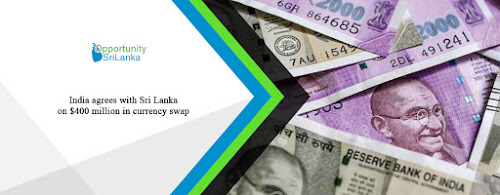Boatbuilding is
a targeted sector defined in the 2018-2020 National Export Strategy (NES)
because it has the potential to make a vital impact on the country's foreign
exchange earnings. Due to its strategic location and skills availability, Sri
Lanka has an advantage in becoming the hub for boat manufacturing in the Asia
region. The increasing demand for regional and local boats worldwide for fishing,
construction, commercial, and recreational purposes has opened up tremendous
opportunities and new markets for Sri Lanka.
The boat
manufacturers must allow demonstrating their capabilities to the international
market to leverage the opportunity offered. Keeping in line with this EDB began
to promote the sector internationally by organising attendance at the Genoa
Boat Show, held in Italy from September 19-24, 2019.
This exhibition
is one of the largest yacht shows held annually in Europe. A leading manufacturer
of Sri Lankan boats was able to obtain orders for the ships displayed at the
show to the value of Euro 6900 (Ex-Factory), and other companies are
negotiating with the market inquiries they received.
Given the
importance of continuing Sri Lanka's international presence, EDB, with the
assistance of the Sri Lankan Consulate General in Frankfurt, Germany arranged
the participation of three boat building companies at the boot Düsseldorf Boat
Show – Germany, held from 18-26 January, which is one of Europe's annual
premier international indoor show.
Messe Dusseldorf
GmbH arranged the 51st edition of the boot Dusseldorf Boat Show 2020. This
year's show featured a large selection of products including yachts and
motorboats by more than 1,900 exhibitors from 71 different countries. The show
drew nearly 250,000 visitors.
The participants
were able to establish positive relations with potential buyers, experience the
latest developments, emerging trends in the boat construction industry, and
yachting. Boot Dusseldorf offered a rare and detailed analysis of the boat
building industry's trends and new developments and provided a perfect platform
for showcasing boat builders ' boats and models.
A Sri Lankan
firm has been able to connect with a Dutch manufacturing partner who has shown
interest in starting development as a partnership in Sri Lanka. Both companies
will further negotiate with customers who approach the exhibition. EDB will
continue to promote the industry's ability to create more opportunities in the international
market to increase the industry's global presence while providing an
encouraging atmosphere for producers locally to pursue.
Research has
already begun on creating a breakwater in Kapparathota to encourage the launch
and continuation of a regulatory framework for the entire value chain of the boat
building industry (excluding fishing boats). The EDB will also discuss the
sector's problems with relevant government stakeholders.
OSL Take: The
government of Sri Lanka's focus is on making the country a maritime hub in the
Indian Ocean region. The latest achievements of the Colombo and Hambantota
Ports indicates that the country is closing in on achieving the target. The
port already has an industrial zone on the premises, which provides an ideal business
space for companies engaged in exports and logistics.
All these
developments would help Sri Lanka engage in trade activities with other
countries. On the other hand, Sri Lanka could attract more cruise liners to the
state by developing other harbours around the country and developing the
required infrastructure facilities. Foreign businesses/investors should explore
the increasing investment opportunities in Sri Lanka's ports and shipping
sector.
VBS/AT/18082020/Z_TB5


















